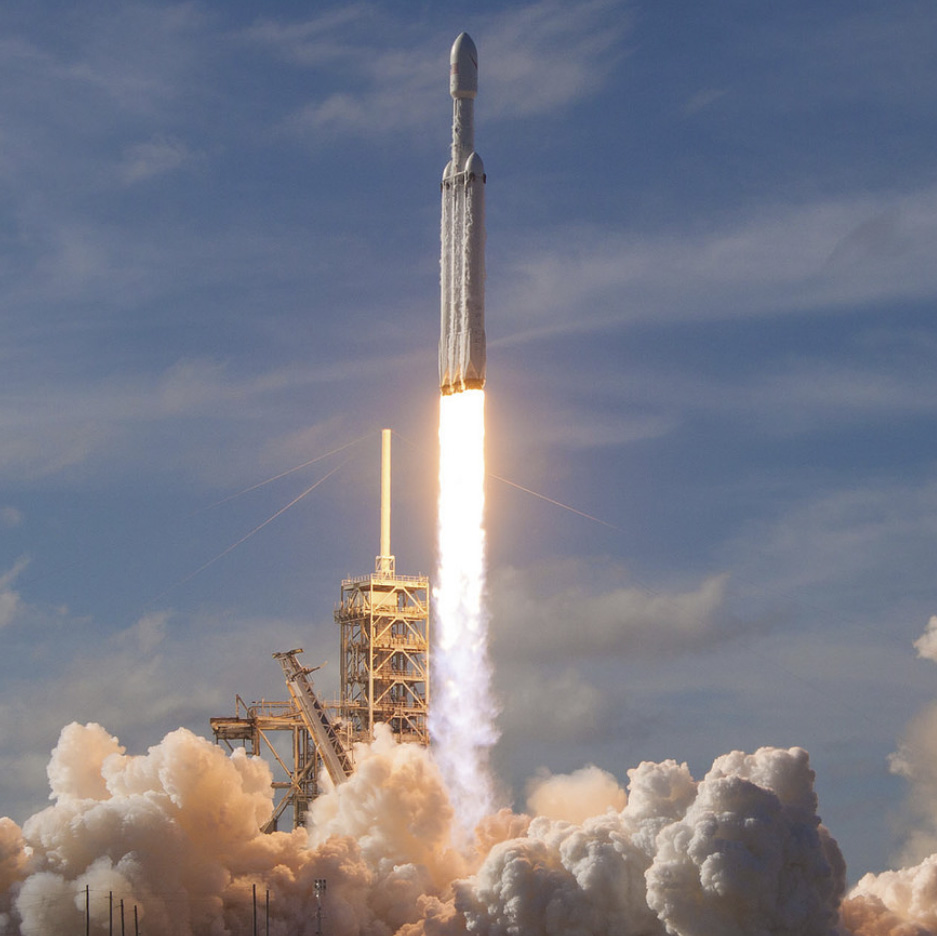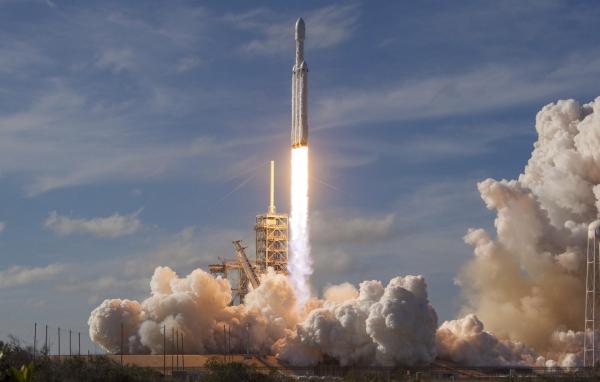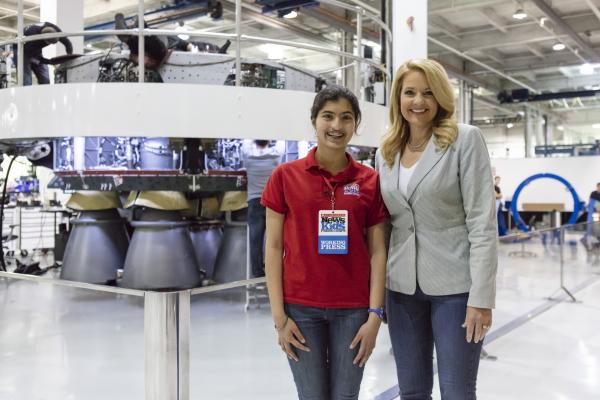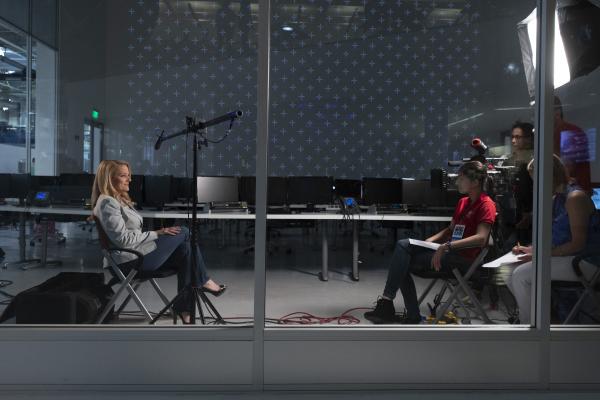KID REPORTERS’ NOTEBOOK
Reaching for Mars at SpaceX


The Falcon Heavy, a partially-reusable vehicle designed by SpaceX, is launched from the Kennedy Space Center in Florida.
“We’ll have people on Mars by the middle of the next decade,” says Gwynne Shotwell, president and chief operating officer of SpaceX. I recently visited the company’s headquarters in Hawthorne, California, to talk with Shotwell and learn more about the company’s mission.
Shotwell joined the private space exploration company in 2002, soon after it was founded by Elon Musk. SpaceX designs and manufactures spacecraft with an aim toward creating affordable and reusable rockets. Its goal is to make space travel practical enough so that, eventually, people can settle on Mars.
“The future is vastly more interesting and exciting if we’re a space-faring civilization and a multi-planet species,” Musk said at the 2017 International Astronautical Congress. “I can’t think of anything more exciting than going out there among the stars.”
MISSION: MARS
Driving into the SpaceX headquarters, one is struck by the Falcon 9 booster displayed outside. It is 230 feet high and weighs 1.2 million pounds. Falcon 9 was the first-ever orbital rocket to be re-launched and to land successfully, a proud milestone for SpaceX’s reusability mission.
SpaceX also works with NASA (National Aeronautics and Space Administration), launching satellites and ferrying cargo. Its Dragon capsule has carried supplies to the International Space Station several times.

Manat with Gwynne Shotwell at SpaceX in Hawthorne, California
Will SpaceX achieve its mission of getting people to Mars? Shotwell is optimistic. She and I sat down in the mission control room, where SpaceX’s launches and flights are monitored. It’s outfitted with huge computer monitors and windows that overlook the factory floor, where SpaceX engineers work on rockets 24 hours a day.
Here are highlights from my conversation with Shotwell, which has been lightly edited for clarity:
How will we get to Mars and back?
We have to have rockets and spaceships that are reusable. If you took people to Mars, that might be super great, but you couldn’t bring them back. One of the key elements of SpaceX rockets is that we can fly them and then bring them back and fly them again. Other folks can’t do that with their rockets. They fly them once, and then the rockets get dumped in the ocean, which is such a waste.
We’ll see the Mars spaceship do some testing next year. I think that we’ll actually be able to get that spaceship to Mars a few years later. And we’ll have people on Mars by the middle of the next decade.
Why are experimentation and failure so important?
People learn far more from their failures than they do from their successes. You tend to have a success, walk away, think about the next thing and not think about all the things that could’ve gone wrong in order to achieve that success. When you have a failure, you know exactly what went wrong, and you go in and fix that part of the system. Failure is incredibly important in getting to that ultimate design.

Manat talks with Shotwell in the mission control room at SpaceX.
Why should women and others underrepresented in tech consider STEM careers?
Everyone should consider a career in STEM [science, technology, engineering, and math]. Women are great at solving problems, they’re great collaborators, and they make up a critical part of any engineering team. STEM fields are changing the world. Be part of that.
What do you see for the future of tech?
One of the areas that young Americans should think more about is building big machines. More people are focused on tech for the apps. Apps can change people’s lives, but the things that really change the world are building new ways of moving people around—big rockets moving people to other planets and rockets that can be used in lieu of airplanes to get from here to Hong Kong in half an hour. I’m hoping that all of you who are considering a STEM career think about big machines, not just little apps. Big machines will change the world.
What advice do you have for kids who are interested in tech careers?
Follow your passion. Studying engineering is great for everyone. Engineers learn how to become logical thinkers. They’re problem solvers. That education is important even in daily life, not just if you’re designing rockets and spaceships. For now, focus on your math and science classes.
